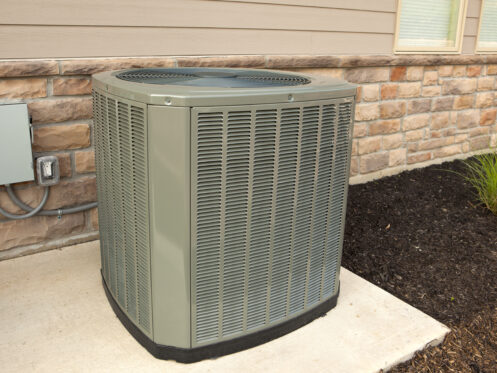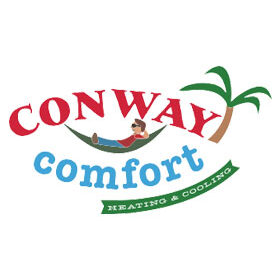Functional heating and cooling systems are important for maintaining a comfortable, air-conditioned home. However, maintaining traditional HVAC systems can be costly and environmentally damaging. Heat pumps are becoming a more popular and environmentally friendly option for heating and cooling homes in this era of sustainability and energy efficiency. However, choosing the best heat pump for your house can take time, given the range of options.
A Comprehensive Guide on Heat Pumps
It is important to have a basic understanding of how heat pumps operate before selecting one. Heat pumps are indoor climate-control devices that move heat from one place to another. In the winter, they pull heat from the outside air to warm your home, while in the summer, they remove heat from your home and release it outside for cooler air.
Because they transfer heat rather than producing it, they are a more environmentally friendly option for heating and cooling than conventional systems. This makes them tremendously energy-efficient.
Identify Your Heating and Cooling Needs
Determine your unique heating and cooling needs before selecting the best heat pump for your house. Below are a few factors to consider.
Home Size
The amount of space in your home that needs to be heated or cooled effectively depends directly on the square foot of your house.
Climate
A major factor in determining the size and kind of heat pump you require is the climate in your area. For effective winter heating, colder climates need a more intensive system.
Insulation
Since well-insulated homes retain heat better, they need a smaller heat pump. A larger unit will be required in poorly insulated homes to offset heat loss.
Temperature Preference
The ideal temperature for maintaining your house should be taken into consideration. A tropical climate necessitates different conditions than a temperate or colder area.
Types of Heat Pumps
Different heat pumps are uniquely designed to serve a particular purpose. It is crucial to differentiate the various types to choose one that will serve you and your household best.
Air Source Heat Pumps
These are the most popular ones. They work well in moderate climates and extract heat from the outside environment.
Ground Source Heat Pumps
These types of pumps use heat derived from the earth to keep temperatures relatively constant all year long. Although they are very effective, installing them costs more.
Ductless Mini-Split Heat Pumps
These are a perfect choice for homes without ductwork. They are made up of several indoor units for zoned heating and cooling, as well as an outdoor unit.
Absorption Heat Pumps
These heat pumps need a heat source such as solar energy, propane, or natural gas. They are less prevalent in residential settings and appropriate for specific uses.
Levels of Energy Efficiency
As you want to ensure energy efficiency, these ratings and features will guide you to getting what you need.
Heating Seasonal Performance Factor (HSPF)
The heat pump’s heating efficiency is indicated by this rating. A high HSPF means more effective heating.
Seasonal Energy Efficiency Ratio (SEER)
Higher SEER ratings indicate better cooling performance.
Variable Speed Compressors
These heat pumps improve efficiency by adjusting their output to match the heating or cooling demands at any given time.
Energy Star Certification
Heat pumps that have attained this designation should be sought after because they adhere to strict energy efficiency standards.
Pump Size
An appropriate heat pump size is essential to guarantee maximum effectiveness and efficiency. While an oversized unit may short cycle, resulting in inefficiency and increased wear and tear, an undersized one will find it difficult to maintain the temperature you want. Take into account elements such as local temperature extremes, insulation, home size, and climate when choosing the right size.
It is advised to have a Manual J load calculation done by a professional. Every element that affects the amount of heat gain and loss in your house is considered in this computation. You’ll obtain a precise estimation of the heat pump capacity required to maintain the comfort of your home throughout the year by doing this.
Budget
When selecting a heat pump, consider your spending limit, and look into any local financial incentives available. Some states provide low-interest financing options, tax credits, and rebates for energy-efficient heating and cooling systems.
Installation and Location
Selecting the ideal heat pump is just as crucial as ensuring proper installation. Poor installation can lead to lower efficiency, higher energy bills, and frequent maintenance problems.
Select a Qualified Installer
Go with certified HVAC specialists, such as Conway Comfort Heating & Cooling, who possess knowledge of installing heat pumps.
Location
Ascertain the ideal spot for the outdoor unit, keeping in mind that it should be clear of obstacles, have good ventilation, and be away from noisy regions.
Ductwork
To stop heat loss, make sure your ductwork is properly insulated and in good condition if you have a ducted system.
Zoning
To improve control over various areas of your house, think about zoning your system.
Research and Comparison
Do your homework on various brands and models before settling on one. Customer reviews and expert opinions can offer insightful information about the dependability and performance of a particular heat pump.
Costs of Upkeep and Operation
Despite being generally low-maintenance devices, heat pumps must be serviced regularly. Request a maintenance schedule from your installer, and consider the overall operation cost. Even though heat pumps are energy-efficient, it’s important to be aware of the possible costs because electricity rates can change.
Warranty
Verify the warranty provided by the manufacturer to make sure your heat pump has enough coverage. Be mindful of any circumstances that could nullify the warranty.
Noise
Take into account the heat pump’s noise levels, particularly if it will be installed close to a living space. In general, ductless systems are quieter than conventional ducted systems.
Impact on Environment
Although heat pumps are thought to be environmentally friendly, it’s still worthwhile to learn more about their effects. The total carbon footprint of your heat pump can be influenced by the electricity source that powers it. To further lessen your influence on the environment, you can choose a heat pump that can be powered using renewable energy sources.
Final Considerations for Your Home’s Ideal Heat Pump Choice
Take your time to analyze these factors as you look for the most suitable heat pump for your home. At Conway Comfort Heating & Cooling, you can count on us to help you choose the best heat pump based on your needs. Our company is dedicated to providing clients with various heating and cooling solutions to facilitate comfortable home environments. You are guaranteed nothing short of exceptional service, budget-friendly quotes, and professionally trained experts to serve you.
Located in East Windsor, NJ, at Conway Comfort Heating & Cooling, we are not limited to providing our products and services to clients residing here. If you are located in East Windsor, West Windsor, or surrounding areas of the region, contact us today and let us help you!





